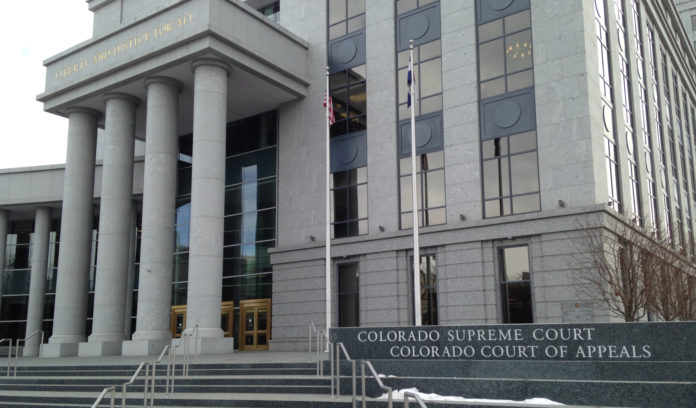
A division of the Court of Appeals on Aug. 26 reversed a $3 million judgment against a for-profit college, finding the consumer protection claims against it must be retried because the state didn’t meet its burden in proving the school’s alleged deceptive practices had a significant public impact.
The Court of Appeals’ decision answered questions about the retroactivity of a 2019 amendment to the Colorado Consumer Protection Act that did away with a requirement for the Attorney General to prove that unfair or deceptive trade practices had a significant impact on the public. The appellate court concluded the amendment is a change to the law, not a clarification, and does not apply retroactively to the defendant’s case, which was tried in 2017 and involves conduct going back more than a decade.
In 2014, the Colorado Attorney General’s Office sued CollegeAmerica, a for-profit occupational school with three Colorado campuses, for violations of the CCPA and consumer lending laws. The state alleged CollegeAmerica made false or misleading statements in its promotional materials and failed to disclose information about the earnings and job placement rates attained by its students, the benefits of the school’s institutional loans, the existence of certain training and degree programs and whether certain programs properly prepared graduates for licensure in their chosen professions.
The case went to trial at the Denver County District Court in the fall of 2017, but a decision wasn’t issued until August 2020. In the interim, there were developments affecting the state’s requirement to prove significant public impact when alleging deceptive trade practices. In early April 2019, a division of the Court of Appeals announced its decision in State ex rel. Weiser v. Castle Law Group, holding that the Attorney General was required to prove public impact in cases brought under the CCPA.
A month later, the governor signed into law HB19-1289, which amended the CCPA to say that the state does not require proof that a deceptive trade practice has a significant public impact. The state then filed a motion asking the trial court to uphold a pretrial ruling that it was not required to show significant public impact.
“[T]he question becomes whether this court’s analysis is controlled by the court of appeals opinion in Castle … or by the newly amended statute, which does not require such a demonstration,” Denver District Court Judge Ross Buchanan stated in his 160-page order. Buchanan concluded the amendment was a “clarification of the law, rather than a change,” and did not require the state to prove significant public impact. The lower court ruled in the state’s favor, ordering CollegeAmerica to pay $3 million in fines.
On appeal, CollegeAmerica argued the 2019 amendment was a change to the law, not a clarification, and neither the statute’s text nor legislative history show clear retroactive intent and should not apply retroactively.
The Court of Appeals sided with the college, finding the change does not apply retroactively. The division also concluded that even before the ruling in Castle, the state was required to prove significant public impact as part of its case, citing the Colorado Supreme Court’s 1998 decision in Hall v. Walter. The division reversed the trial court’s judgment and concluded a new trial is necessary because the lower court didn’t make any factual findings on whether there had been a significant public impact.
The Court of Appeals also granted CollegeAmerica’s request that all further proceedings be held before a different judge because it took Buchanan nearly three years to issue a decision in the case. The division acknowledged that the case, with nearly 50 witnesses and a weeks-long trial, was “a massive undertaking for everyone involved.” It also noted that a case should only be reassigned when there is proof of bias or extreme circumstances.
“We do not think that the judge who presided over the trial harbors any personal bias that renders him unfit to preside,” stated the appellate court’s decision. “But we conclude that the significant delay in issuing the court’s order is an extreme circumstance that requires a new judge to take over the case on remand to ‘preserve the appearance of justice.’”
However, the division rejected CollegeAmerica’s argument that it is entitled to a jury trial and stated it is not entitled to one on remand.
Additionally, the division ruled against the state in its cross-appeal asking the court to find that CollegeAmerica’s entire loan program was unconscionable under the Uniform Consumer Credit Code. The trial court found the college violated the consumer lending law with respect to certain consumers, but the state argued the loan scheme as a whole was unconscionable because CollegeAmerica knew students would not repay the loans.
CollegeAmerica is not the only for-profit college to be targeted by the Colorado Attorney General’s Office. In 2012, the state settled a lawsuit with Westwood College for $4.5 million dollars over alleged violations of the CCPA and consumer lending laws. Last month, the U.S. Department of Education announced it will forgive the loans of more than 1,600 Westwood College students, including 115 Colorado borrowers.
In April, Colorado Attorney General Phil Weiser led a coalition of two dozen states in asking the U.S. Department of Education to forgive loans for certain ITT Tech students. In June, the DOE forgave $500 million in loans for former students of the defunct school, and on Aug. 26 the department announced another $1.1 billion in loan forgiveness.

